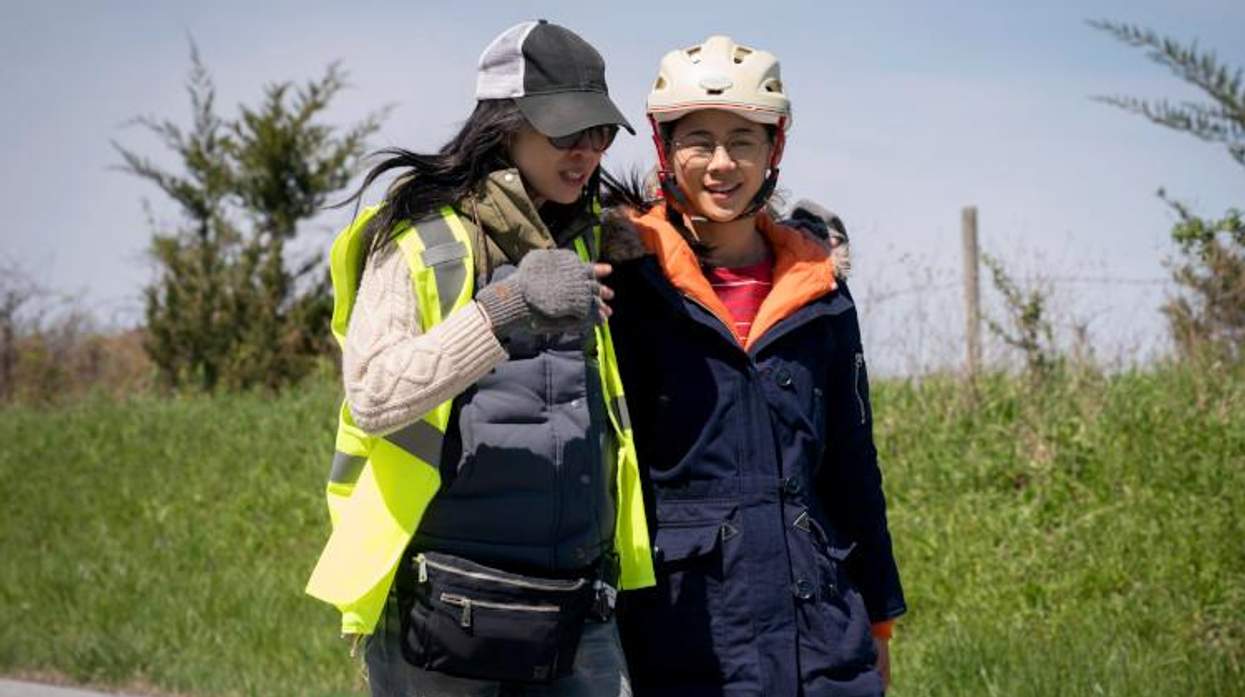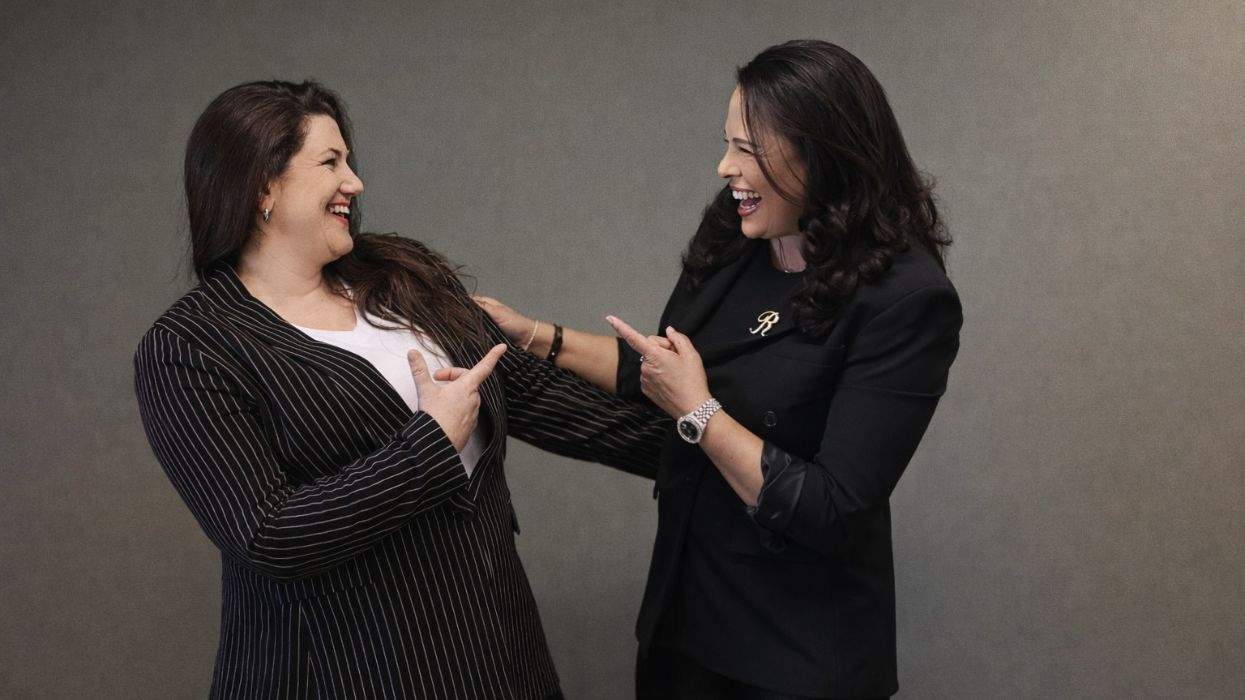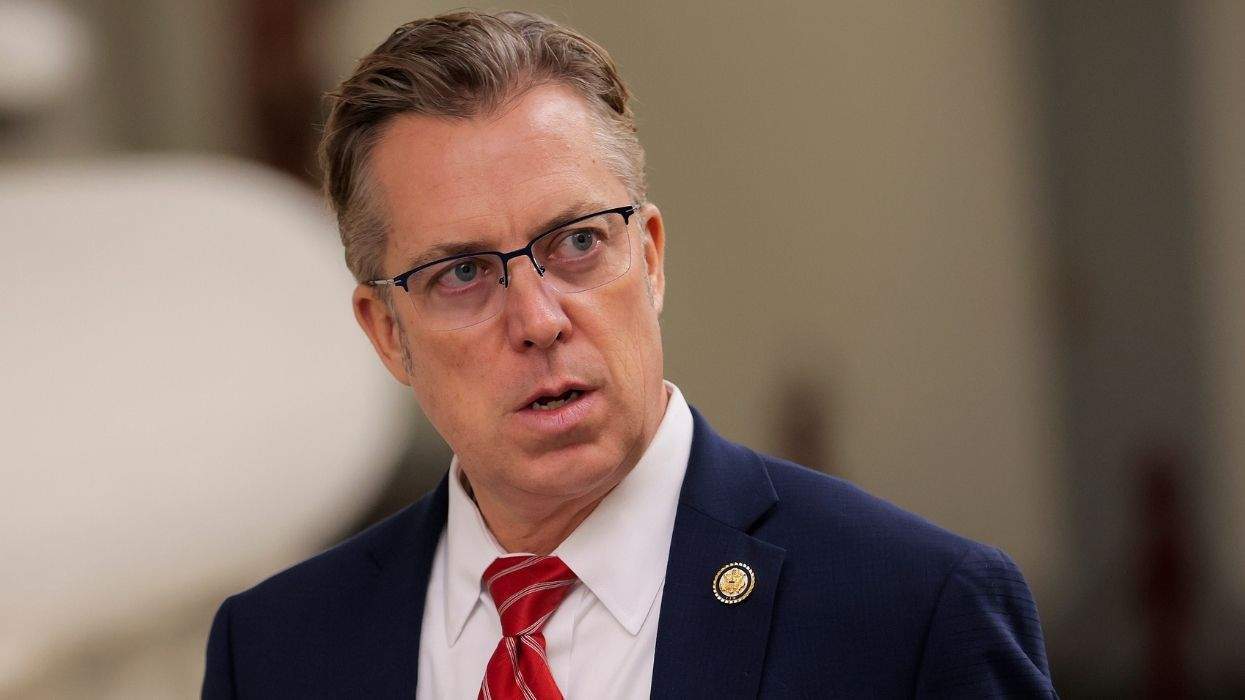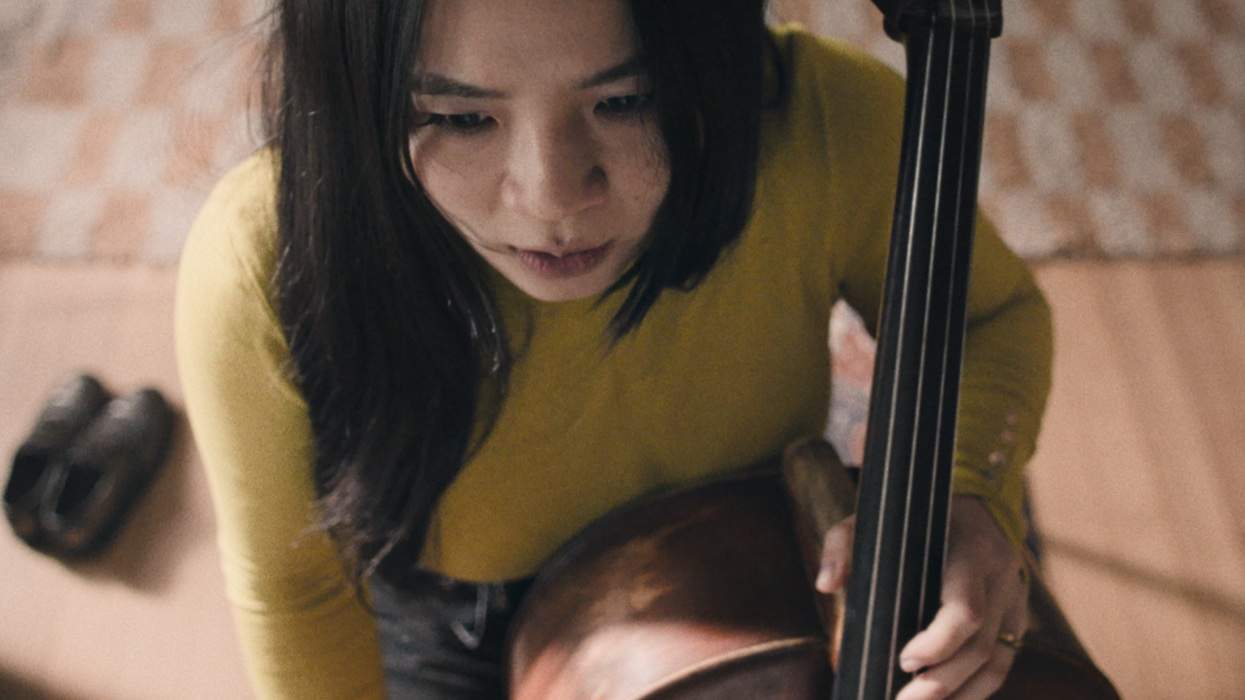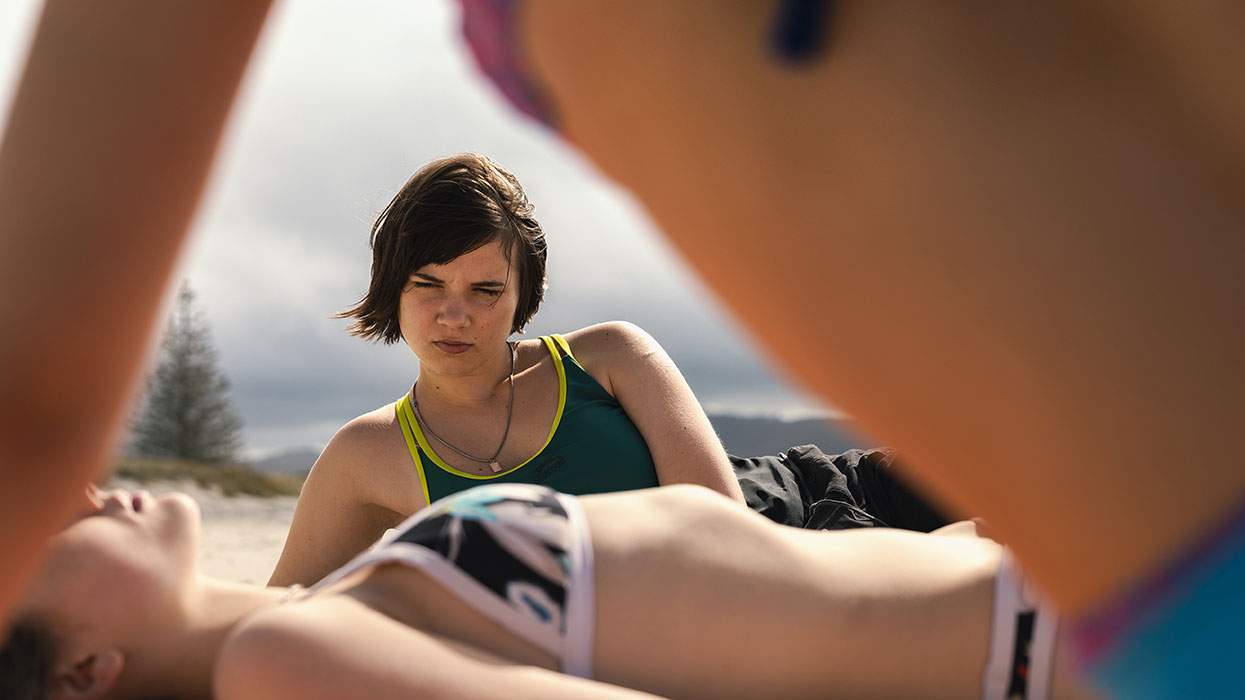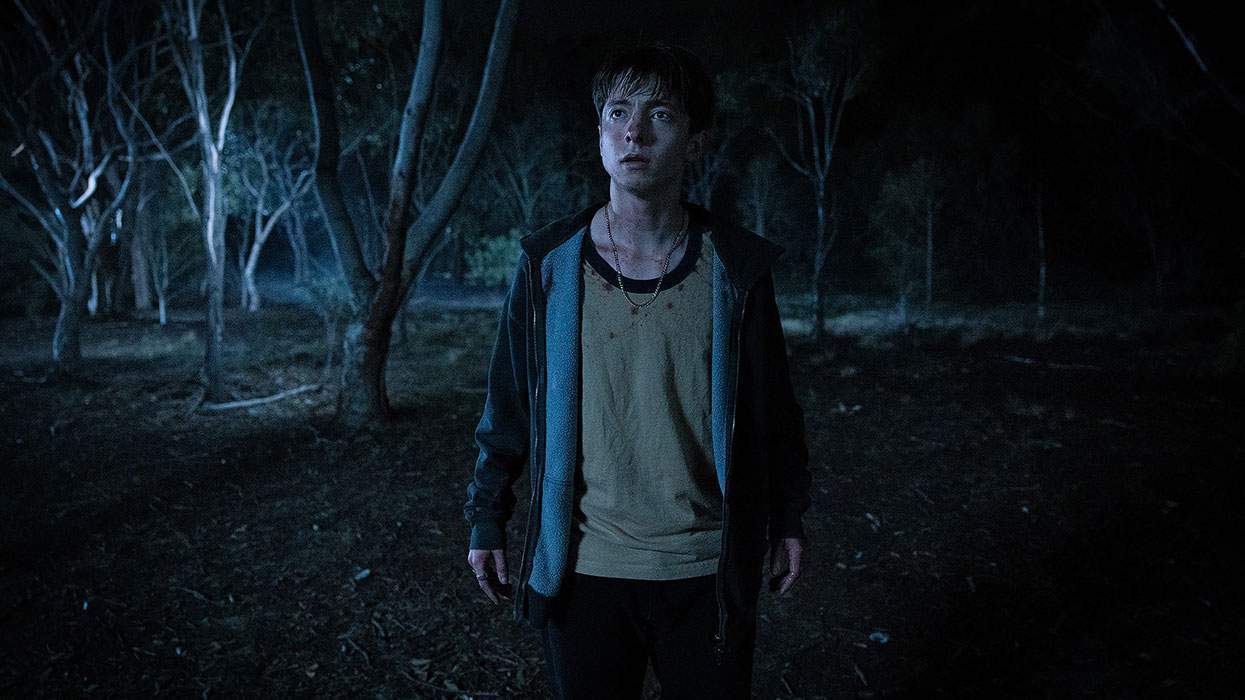This interview was conducted as part of The Advocate's interview podcast, LGBTQ&A.
Alice Wu was working as a software engineer at Microsoft when she wrote the first draft of Saving Frace, the 2004 romantic comedy/drama about two queer women that starred an almost exclusively Asian and Asian-American cast. Wu soon quit her job, moved to New York City, and did what she believed was impossible: she got the film made. After the success of Saving Face, when the film industry and fans of her work wondered what she'd make next, she again did the unexpected: Wu moved to San Francisco to care for her mother. She would stay there for the next 15 years.
And unexpected again, Alice Wu is back with her second film, The Half of It, now streaming on Netflix. On this week's episode of LGBTQ&A, Wu talks about putting a queer twist on the high school rom-com, why she's still surprised Saving Face got made, and why it wasn't until just recently that started identifying as a filmmaker.
Read highlights below and click here to listen to the full interview.
Jeffrey Masters: There's this myth in Hollywood that you can't take a break or pause momentum. Did you have worries about taking so much time off?
Alice Wu: Yeah, I certainly bought into that myth. I thought when I left the industry 15 years ago, I thought I'd left for good. I never thought I'd be back.
I didn't get started until my late 20s. And I had a different career in computer science and then I thought, "Alright. My 30s will be this crazy time when I manage to get a film that I, certainly, and nobody thought would get made, made."
Then I went out to San Francisco to take care of my mom, which was home. To be able to focus on my family as I was heading into my 40s felt right.
JM: Had I asked you at that time if you'd ever make another film, would you have said "no"?
AW: Yeah, I think I would. In fact, I get asked that all the time because there is apparently a very rabid group of Saving Face fans. I've since discovered that it's a larger group than I'd realized. I didn't realize until my second film got announced. All of these people came out of the woodwork, all over the world being like, "I've been waiting for another film." And I'm like, "What? This is true?" I had no idea.
JM: Were you content just being a caretaker?
AW: It's a hard one to answer because, in hindsight it's easier to say, "Yes."
When it's happening, it's really deeply uncomfortable...when those roles are reversed. I hadn't lived at home since I was 16, so it wasn't like my mom had been taking care of me in any direct way. But emotionally, she was my mom.
It was very sort of stressful, but it also was probably necessary. It was a few years of a lot of fighting and arguing and those kinds of power struggles. But I think those are the things that you have to go through to get to real intimacy. I honestly can't think that anyone could love me more than my mom. And I don't love anyone more than I love my mom. But I don't think we had the most intimate relationship because there were a lot of areas we just didn't know how to talk about. Now we do.
So when you say, "Was it rewarding?" It was, but it didn't feel like it while it was happening. In hindsight, I can't imagine anything that would've been more rewarding in my 40s.
JM: I ask because you quit a promising career at Microsoft to move to New York City and make a movie. I wondered if a person would be content putting that ambition aside.
AW: That's such an interesting parallel. I think the reason why those two things are linked though, is that I didn't move to New York to become a filmmaker. I moved to New York to try and make Saving Face, which I didn't think would get made, by the way. Who thought that movie was going to get made 15 years ago? I wrote that movie for my mom.
JM: You only set out to make one movie, not build a full career.
AW: Yeah. I wanted to make that film.
It's similar to going to go take care of my mom. If you told me during that time, especially in those years we were fighting, that someday you would have this wonderful, intimate relationship with your mom, I'd be like, "Yeah, that's never, ever happening. That woman is impossible. I love her to death, but she is impossible." But you do it out of your love for that person.
So similarly in trying to make the movie, I did it out of my deep love for that, I guess, that script and just that desire to be like, "Well, it's like a one in a million chance. But, man, if it happens, that would be amazing."
I guess because I'd planned it so carefully so I wouldn't go into debt. I was living on a tight budget for five years. I thought five years seemed like a reasonable amount of time, where at the end of that time if it didn't happen, I would've felt like I had given it my best. And I don't think I thought beyond that so when it actually got made, I really was like, "What is happening right now?" It was a fun but disorienting few years.
When people are like, "What's next?" I've become aware that I am the kind of filmmaker that isn't... I think I need to love the project. I need to love it like it's almost a child to me. Otherwise, you sacrifice a lot. This is not a field that doesn't demand physical and emotional sacrifices from you. There's no world where it's like, "I'm off making my film and I have plenty of emotional energy for my best friends and my family." For a number of months, I'm pretty much checked out unless it's an emergency. And that's a sacrifice. So I kind of have to ask myself if I'm going to do that for something, is it worth that sacrifice?
JM: When did you finally start to identify as a filmmaker?
AW: Maybe not until this movie, actually. I love being on a shoot. I'm a director that loves being on shoot. I love the pace of it. I love making decisions quickly. I love the collaboration.
There's something about the feeling of actual production that's well-suited to me. I think that was when I realized, "Okay, I still have a lot to learn. I've only made two films, but maybe I am a filmmaker. Maybe this is something that is actually somewhere in my blood."
JM: The Half of It touched me because the main character isn't someone who has her queerness all figured out yet. She doesn't have the language the describe it and as the filmmaker, you met her where she was at.
Alice Wu: Sometimes I'll get asked, "Is Ellie this or is Ellie this?" And what I end up saying is, "Ellie is 17."
I don't know what you were like at 17, but at 17, I wasn't even out to myself. I didn't come out to myself till my senior college. We don't have the language always to explain our emotions or something as potentially scary as your queerness, or even your sexual identity at all.
At 17, I think just the notion of sex can be so terrifying because it's so confusing. Most of us have had crushes on someone that we felt, for whatever reason, it would be devastating if they knew or if other people knew. That somehow we feel like we'll be judged. And I think that's partially what makes the character of Ellie so relatable. For a character that's that smart, for her to be that human and confused, is what makes our hearts go out to her.
JM: High school movies tend to have similar beats with classes and cliques, school dances and football games. Was it hard to write about a high school experience and also make it feel fresh and unique?
AW: I was thinking more about the fact that Trump had been elected and I decided to set this in rural town because there was just something about some of the issues that I want to deal with in terms of xenophobia or homophobia, racism, classism, all these things.
I wanted to choose an area of the country where it's believable that a character like Paul, who comes from a small town, doesn't want to leave that small town. Here's a kid who it turns out is homophobic, but your heart kind of goes out to him.
There's a moment where he suddenly breaks your heart and I really wanted us to have that feeling of like, "Wait, how could this person we love so much say this?" And then be like, "Oh. Good people can have attitudes that hurt us."
Click here to listen to the full interview with Alice Wu on the LGBTQ&A podcast. Subscribe and listen on any podcast platform.
The Half of It is now available on Netflix.
